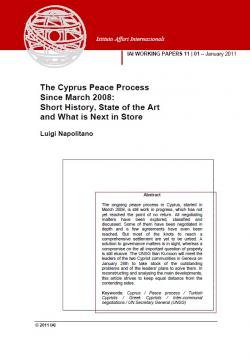Building the Transatlantic Area of Freedom, Security and Justice. The Case of the Passenger Name Record Agreements
For years, controversy has plagued the EU's attempts to agree on a legal basis for sharing the personal details of airline passengers with the US. Now, opposition in the European Parliament may see this form of counterterrorism cooperation rejected. The arguments are about more than record-keeping: they relate to the need to assure passenger security in the post-9/11 era but also the risk that these security practices can pose to the privacy and personal liberty of normal citizens. This paper analyses the development of EU-US PNR data-sharing agreements as a case study for wider transatlantic security cooperation. Reviewing the key challenges from the PNR story presents a strong argument for the US to fully engage with the EU on "internal" security measures that can assure transatlantic security externally. To fully maximize the opportunities however, agreements like PNR need independent oversight and redress procedures. Without such elements, failure on PNR is more likely and the possibilities for a wider transatlantic area of freedom, security and justice may narrow.
Paper presented at the seminar on "The Challenges in Creating a Transatlantic Area of Freedom, Security and Justice", Rome, 15 March 2012.
-
Details
Roma, Istituto Affari Internazionali, 2012, 18 p. -
Issue
1206 -
ISBN/ISSN/DOI:
978-88-98042-43-2
Introduction
1. Background
2. What is PNR?
3. EU-US agreements on PNR
4. Opposition to PNR sharing
5. Principles of data protection
6. Why everyone loses without an EU-US PNR agreement
7. Political leadership and practical engagement - the necessary ingredients
8. Moving beyond aviation security
Conclusion
References



